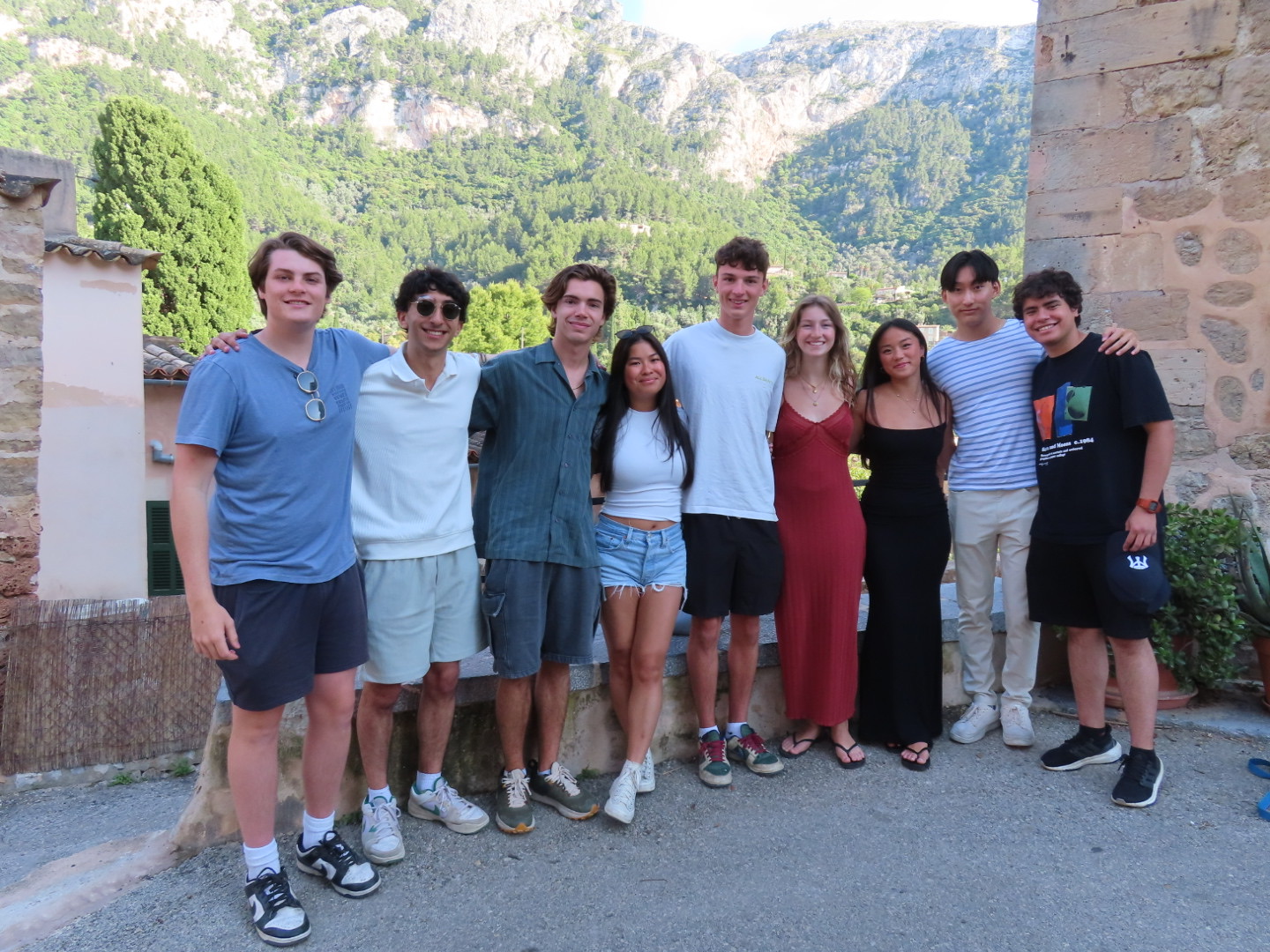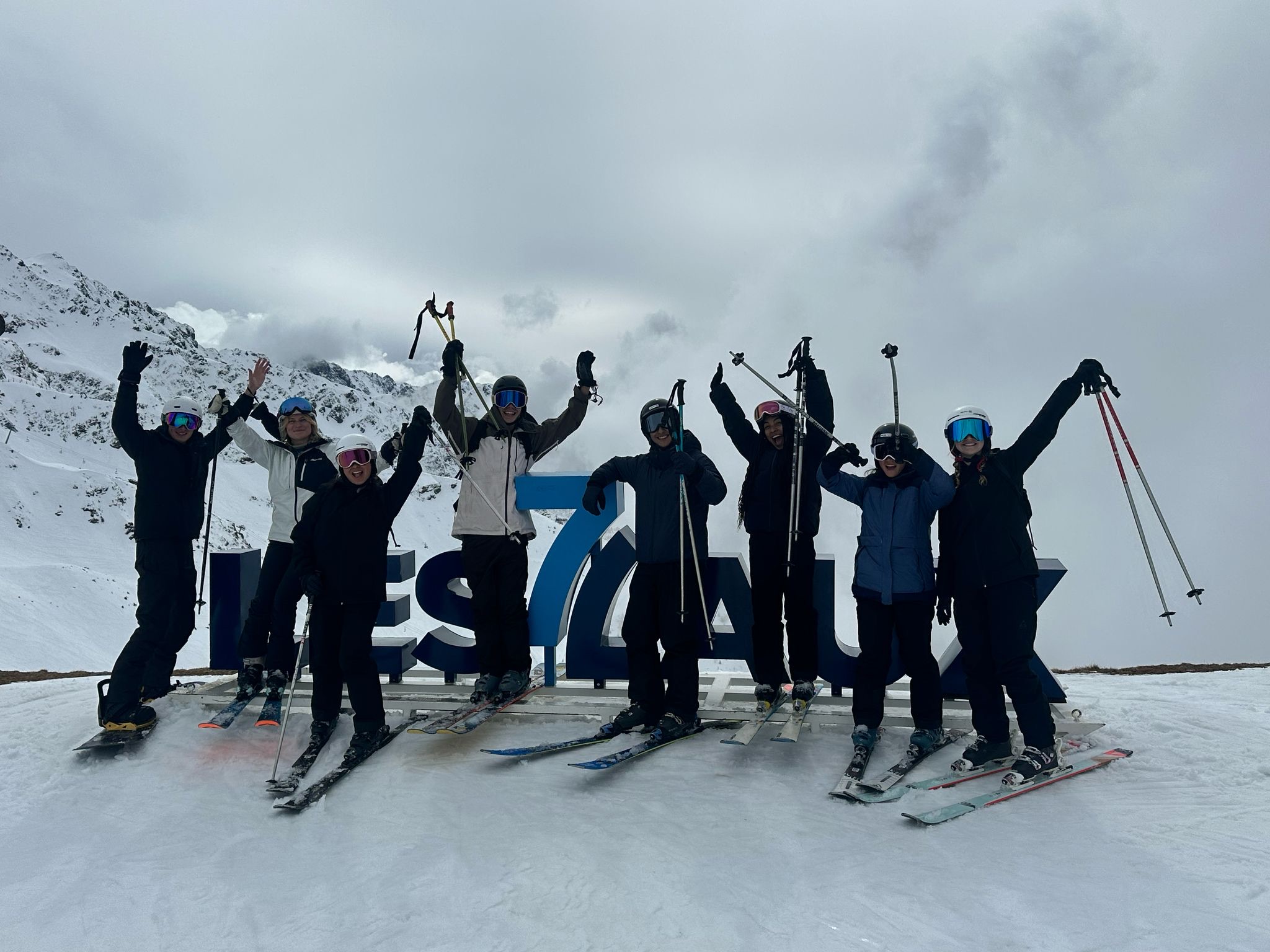Engineering Abroad: BU Sophomores Solve Differential Equations and More in Sydney, Madrid & Grenoble
Engineering Abroad: BU Sophomores Solve Differential Equations and More in Sydney, Madrid & Grenoble
BU Study Abroad offers many different STEM programs. Among the popular options are three designed in partnership with the College of Engineering specifically for second-semester sophomore engineers: Sydney Sophomore Engineering; Madrid Engineering; and Grenoble Engineering.
These programs allow students to stay on track academically with rigorous engineering coursework while gaining valuable international experience — a unique opportunity that few universities can offer. For Rachel Eagle (ENG ’27), this structure made all the difference and was a key driver of her interest in attending Boston University.
“Growing up, Australia was always my dream destination,” Eagle says. “The sophomore study abroad [engineering] program was actually one of the reasons I picked BU. Having everything planned out — classes, registration, even being with a group of engineers in the same courses — made it a once-in-a-lifetime opportunity to travel for six months without worrying about falling behind.”

Taking classes at the University of Sydney helped Eagle, and others, feel like they lived in Sydney and were not simply visiting. “I made friends in my classes and felt part of the community,” she says.
The College of Engineering’s Senior Associate Dean for Academic Programs Sol Eisenberg says, “We think it’s important for engineers to be aware of what’s going on globally and to experience a foreign culture and — for our European programs — become familiar with a foreign language.”
In Eagle’s and Irene Skandalakis’ (ENG ’27) case, they studied Australian culture and got to see Sydney’s many cultural highlights through their Australian Culture and Society class, a course that all Sydney students take.
“The field trips were great,” Eagle says. “We went to Taronga Zoo and even went standup paddle boarding — it was such a fun way to explore Sydney.”
The schedule also gave students time to travel early in the semester. Eagle and her friends took a trip to Cairns to see the Great Barrier Reef before engineering courses at the University of Sydney began. “That trip was incredible,” she says. “I’ll never forget it.”
Rigorous Coursework, Global Perspective
Once engineering courses started at the University of Sydney, both Skandalakis and Eagle discovered a different academic rhythm.
“The classes were really academically challenging with no office hours and heavily weighted exams,” Eagle says. “But that also meant I had more free time to explore and travel.”
Skandalakis found the teaching style refreshing but warned that students need to stay disciplined. “They don’t have as many assignments, so your final might be 60 percent of your grade,” she says. “It’s easy to slack off if you’re not careful, but if you hold yourself accountable, it’s a great system.”
This sense of greater independence and need for more self-directed study is something that students from the Madrid and Grenoble programs noticed as well. Gabriela Kong (ENG ’27), who completed the Grenoble Engineering program, noted that she did more studying on her own, instead of being given frequent assignments, like many U.S.-based courses tend to do.
“It was a bit of an adjustment not being told to do homework every single day,” she says. “But you just have to make sure you’re keeping up with the material, and I did like it at times because it gave me more free time.”
Having more time to explore is something Marissa Lozins (ENG ’27) took advantage of during her Madrid Engineering program, where she resided in a homestay. From her perspective, she says, “yes, we’re taking hard, technical classes in this program, but you don’t have club responsibilities and whatever other extracurricular things you do in Boston, so I found more time to explore Madrid and travel. I got to see a lot of awesome places.”
Kong also highlighted the ease of traveling around Europe and visited numerous cities and countries with friends in the program. Being in Grenoble, they also took advantage of the excellent skiing available and hit the slopes many times.

“I think it’s important to say yes, take chances, and it might feel a little scary at first, but things work out and you’ll never know unless you do it,” Kong says. “I think that’s what I’ve learned about myself from this experience.”
These programs are also a valuable way to showcase that studying abroad can be for all students, no matter their major: “the partnership with Engineering has been remarkable, and BU students have opportunities that are rare for STEM majors,” says Study Abroad’s Executive Director Gareth McFeely. “We look forward to continuing to welcome students on these excellent programs and helping them to expand their worldview academically and socially.”
Hands-On Experience
For both Eagle and Skandalakis, internships were another major highlight of their semester abroad in Sydney. The Sydney program is the only one that offers an internship component, arranged in collaboration with the University of Sydney; the common language between the U.S. and Australia is a major factor in making internships possible.
Eagle interned with a local manufacturing company and discovered a new direction for her career. “I learned that manufacturing isn’t for me, which is just as valuable as finding what you do want to do,” she says. “Now I’m more interested in aerospace and space exploration.”
Skandalakis worked in a stem cell and cancer research lab at the Collings Institute, part of the University of Sydney. “It was such a great opportunity,” she says. “I got wet lab experience and was able to explore a different side of engineering. I even commuted across the city for work, which helped me see more of Sydney.”
A Semester That Stays with You
Now back in Boston, all of the students say their time abroad continues to influence their paths — academically, professionally, and personally.
Skandalakis reflected on how the experience expanded her confidence, “It’s such a once-in-a-lifetime opportunity. You’re really living somewhere, not just visiting, and that changes how you see yourself.”